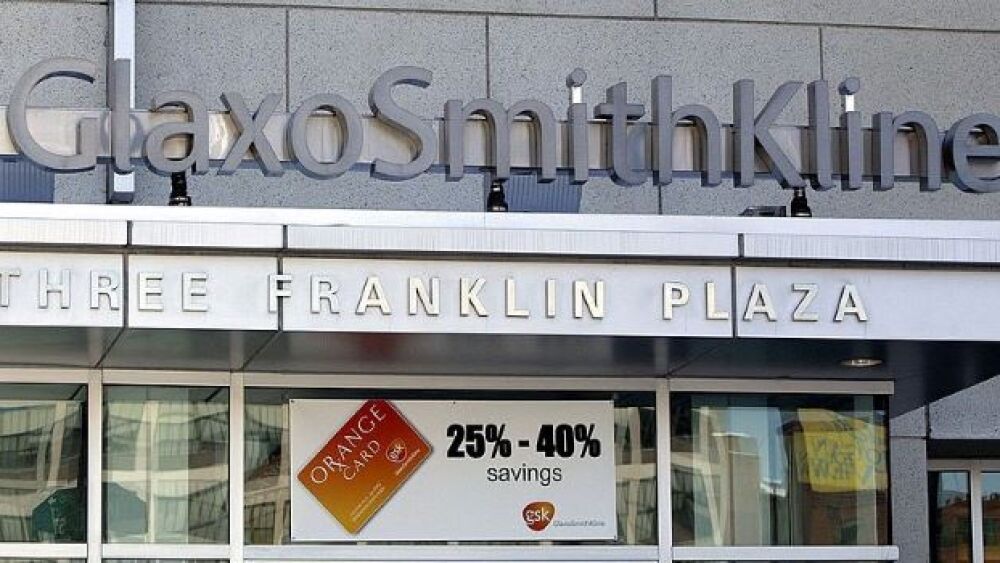Based on the success of a joint immuno-oncology antibody collaboration program targeting CD96, GlaxoSmithKline and 23andMe have extended their 2018 collaboration for an additional year.
Don Murray/Getty Images
Based on the success of a joint immuno-oncology antibody collaboration program targeting CD96, GlaxoSmithKline and 23andMe have extended their 2018 collaboration for an additional year.
The CD96 program is currently in Phase I. GSK and 23andMe are developing a monoclonal antibody dubbed GSK6097608 aimed at CD96, a negative immunoregulatory human cell surface receptor. GSK6097608 is designed to bind to and inhibit CD96 that is primarily expressed on T cells and natural killer (NK) cells. By doing so, it is expected to prevent downstream signaling pathways. GSK6097608 is being paired with GSK’s PD-1 blocking drug, dostarlimab, in the Phase 1 clinical trial. Additional studies will potentially also involve combinations with other anticancer treatments, such as anti-TIGIT and anti-PVRIG drugs.
The two companies first struck a partnership in 2018 to discover and validate novel drug targets through 23andMe’s extensive genetic database. For GSK, the deal included a $300 million equity stake in the California-based company. At the time the deal with 23andMe was struck, Dr. Hal Barron, chief scientific officer at GSK, said the partnership would help shift the U.K.-based company’s research and development organization toward one that is “driven by genetics,” which was expected to increase the impact the company’s discoveries can have on patients. The 2018 deal focused on translating genetic and phenotypic data into R&D activities to improve target selection for precision medicines and support the identification of patient subgroups that are more likely to respond to targeted treatment. Part of that 2018 agreement included GSK taking a $300 million stake in the California-based company.
Kenneth Hillan, head of Therapeutics at 23andMe, touted the benefits of the partnership between the two companies. He said the CD96 program is a prime example of the potential value they bring to drug discovery and development. He said the extension of the target discovery period of the collaboration demonstrates the value of 23andMe’s database for identifying targets and advancing new medicines based on human genetics.
23andMe’s database contains the world’s largest set of genotypic information paired with billions of phenotypic data points contributed by engaged research participants. Also, the company has a database of approximately 12 million genotyped customers. Of those, approximately 80% consent to being used in research, Hillan said.
“Through our genetic validation and based on the Phase 1a data, we are hopeful that targeting CD96 will have the potential to provide cancer patients with a new medicine in the fight against cancer,” Hillan said in a statement. “We believe GSK is in the best position to move this program forward because of its leading portfolio of antibodies targeting the CD96 axis, and their ability to conduct the complex clinical studies of combination therapies that the development plan will require.”
The one-year extension will carry the partnership through 2023. The extension brings an additional $50 million to 23andMe’s coffers.
“Our collaboration with 23andMe continues to exceed expectations, with more than 40 genetically validated drug discovery programs in the GSK portfolio that were initiated under the collaboration,” Dr. John Lepore, head of Research at GSK, said in a statement. “Evidence shows that genetically validated drug targets have at least double the probability of success in becoming medicines; today more than 70% of our targets in research have genetic validation. Working with 23andMe for an additional year will continue to strengthen the quality and breadth of our pipeline and reinforce GSK’s long-term focus on human genetics, the immune system and advanced technologies to discover and develop transformational new medicines for patients.”
For GSK, the one-year extension comes as the company is planning the demerger of its pharmaceutical business from the consumer health business, which is expected to happen later this year.





